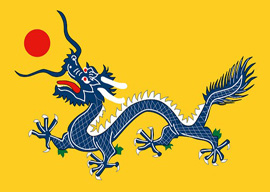
July 20, 2011

If Darwin’s full title was On the Origin of Species by Means of Natural Selection, or the Preservation of Favoured Races in the Struggle for Life, Fukuyama’s could be On the Origin of Political Order by Means of A Variety of Causes, or the Preservation of Favoured Nations in the Struggle for Liberal Democracy. That is what all flags point to for him: “the end point of mankind’s ideological evolution and the universalization of Western liberal democracy as the final form of human government”—which he had already prophesied in The End of History.
So he is consistent with himself, as well as with European thought’s great inconsistent current, that paradoxical mix of faith and reason, faith in reason, actuated by some mysterious force—divine providence or the market’s invisible hand—but always pushing forward, progressing to some definite end. Thomas Moore had the good sense to place it in Utopia, and Marx saw it in the future and communism. For Fukuyama, it is conveniently located right here in America.
Sure, we’re progressing. In history, we’ve progressed from the “great men” paradigm to the scientific one.
Here is the “great men” approach, as parodied by Tolstoy at the end of War and Peace:
Louis XIV was a very proud and self-confident man. He had such and such mistress, and such and such ministers, and he governed France badly….By the end of the eighteenth century there gathered in Paris two dozen or so persons who started saying that all men were free and equal. Because of this in the whole of France people began to slaughter and drown each other. At this time there was a man of genius in France—Napoleon. He conquered everyone everywhere, i.e., killed a great many people because he was a great genius.
And here is the scientific approach, as practiced by Francis Fukuyama: “When a monkey or a human being succeeds in achieving high status, levels of serotonin, a critical neurotransmitter, are elevated.” Or: “The failure to balance [France’s] budget led to bankruptcy and the delegitimization of the state itself, a course that finally terminated in the French Revolution”—that is the economic, or pseudoscientific variant, also a European favorite.
“Since at least the time of David Hume,” says Fukuyama, “we have understood that it is not possible to verify causality through empirical data alone. With the rise of modern natural science however, we have theories of causation that can at least be falsified, through either controlled experiments or statistical analysis.”
Hume wanted us to know “how soon nature throws a bar to all our enquiries concerning causes, and reduces us to an acknowledgment of our ignorance” and that there are “no ideas, which occur in metaphysics, more obscure and uncertain, than those of power, force, energy or necessary connection.”
Drawn by the very obscurity perhaps, we keep exploring these dark recesses. Why not? We’re good at it, searching and sailing, shining theory’s tainted light into the folds of cliffs and brains.
In the thirteenth century, both authors tell us, China possessed a navy finer than any in Europe. They could have explored and conquered, but they didn’t.
Why? asks Fukuyama.
How can we use that information? schemes Kissinger.